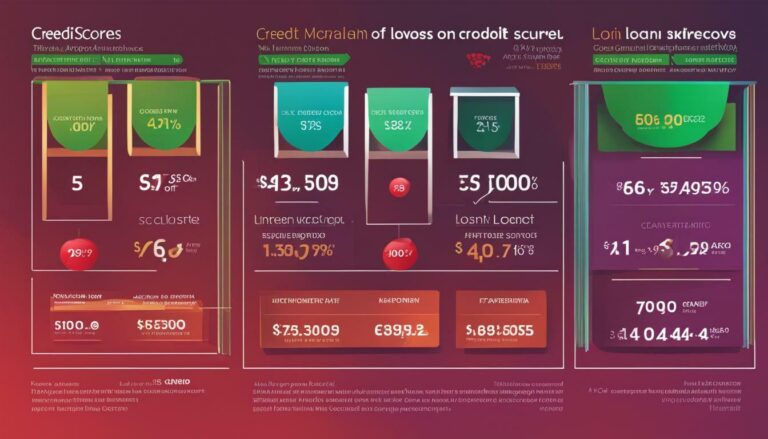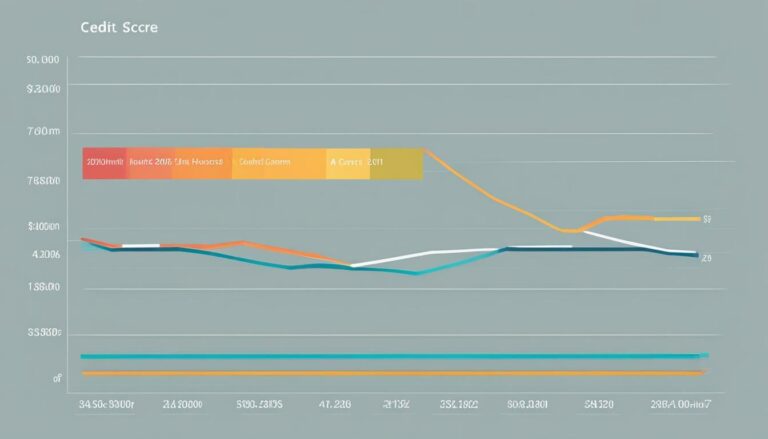Exploring Credit Scores in Literature and Media: What You Should Know

Credit scores play a crucial role in literature and media, providing insights into financial representation and influencing our understanding of personal finance. Understanding credit scoring is essential, especially during times of economic downturn when access to credit becomes more stringent. In literature and media, credit scores are often depicted as powerful indicators of financial responsibility or a barrier to achieving one’s goals. It is important to separate fact from fiction and dispel common myths surrounding credit scoring.
- Carrying a balance does not boost your credit score. Paying off your debt in full and on time demonstrates responsible credit use.
- Medical debt under $500 should no longer appear on credit reports. Disputing inaccurate information can significantly improve your credit score.
- Keeping credit utilization below 30 percent is not a hard rule. Using a low percentage of available credit can actually improve your credit score.
- Closing a credit card account can have minimal impact on your credit score if you have a long history of responsible credit management.
- Updating your income does not negatively affect your credit score. Monitoring your credit record is crucial as more businesses rely on credit reports to make decisions.
- Credit scoring algorithms have transformed lending decisions, replacing subjective judgments with consistent and measurable criteria.
- The FICO score and VantageScore are widely used credit scoring services that provide lenders with reliable credit assessments.
- The history of credit scoring is closely tied to the evolution of consumer surveillance and the use of computerized databases.
- The Fair Credit Reporting Act of 1970 ensures fair, private, and accurate credit reporting.
- Credit scoring models continue to evolve, with the potential for future advancements in machine learning and artificial intelligence.
The Influence of Credit Scores in Books, Movies, and Television
From classic literature to contemporary films and TV shows, credit scores have become a recurring theme, shaping characters and plotlines in captivating ways. Whether it’s a struggling protagonist denied a loan due to a poor credit score, or a wealthy antagonist flaunting their high credit score to assert dominance, the representation of credit scores in literature and media plays a significant role in storytelling.
In books, we often encounter characters whose credit scores serve as a reflection of their financial status and moral standing. It can be a means to highlight socioeconomic disparities, as seen in F. Scott Fitzgerald’s “The Great Gatsby,” where the wealthy characters with high credit scores are portrayed as careless and morally bankrupt.
In the realm of movies and television, credit scores are frequently used as a powerful storytelling device. They can create tension and conflict, as characters face the consequences of their past financial choices. In the film “Up in the Air,” the protagonist’s job revolves around firing employees, and he often assesses their credit scores to determine their level of financial stability and the impact of their termination.
| Credit Scores in Books, Movies, and Television | Relevance |
|---|---|
| Credit scores as a symbol of status and morality | Highlighting socioeconomic disparities and character traits |
| Credit scores as a source of tension and conflict | Exploring the consequences of past financial choices |
| Credit scores as a tool for character assessment | Using credit scores to gauge financial stability and decision-making |
The portrayal of credit scores in pop culture not only reflects the realities of our financial systems but also influences our perception of creditworthiness. It has the power to shape societal attitudes towards credit scores and the importance placed on them. As viewers and readers, it is essential to critically analyze these representations and consider their implications on our own financial understanding.
🚨 TUIC Errors + Low Credit Score?
CreditScoreIQ helps you build credit faster by reporting utility bills to all 3 bureaus—while you dispute errors.
Start Building Credit Today →The Historical Evolution of Credit Scoring and Its Impact on Lending Decisions
The development of credit scoring algorithms has revolutionized lending decisions, replacing subjective judgments with objective and consistent scoring systems. Before the advent of computerization, credit managers would make lending decisions based on personal characteristics and judgments. However, this approach lacked consistency and often resulted in unfair practices.
In 1970, the Fair Credit Reporting Act was introduced to ensure fair, private, and accurate credit reporting. This legislation marked an important milestone in the history of credit scoring, as it provided a framework for credit reporting agencies to collect and maintain consumer credit information. The use of computerized databases enabled lenders to access this information more efficiently and make more informed lending decisions.
One of the most widely used credit scoring services is the FICO score, which was introduced in the 1980s. FICO scores are calculated based on various factors, including payment history, credit utilization, length of credit history, types of credit used, and new credit accounts. These scores have become a crucial tool for lenders in assessing creditworthiness and determining loan terms.
Another credit scoring service that gained traction in recent years is VantageScore. Introduced in 2006, VantageScore provides an alternative to the traditional FICO score and utilizes a similar scoring methodology. Both FICO score and VantageScore aim to provide lenders with a standardized and comparable measure of creditworthiness, enabling them to make more objective lending decisions.
Table: Comparison of FICO Score and VantageScore
| FICO Score | VantageScore |
|---|---|
| Introduced in the 1980s | Introduced in 2006 |
| Range: 300-850 | Range: 300-850 |
| Calculated based on payment history, credit utilization, length of credit history, types of credit used, and new credit accounts | Calculated based on similar factors as FICO score |
| Most widely used credit scoring service | Provides an alternative to the FICO score |

The historical evolution of credit scoring has not only transformed lending decisions but also paved the way for ongoing advancements in the field. With the rise of machine learning and artificial intelligence, credit scoring models are continuously evolving to better predict creditworthiness and improve access to credit for individuals and businesses. However, it is essential to ensure that these models are fair, transparent, and free from bias, as they play a significant role in shaping financial opportunities and outcomes.
The Intersection of Credit Scores, Consumer Surveillance, and Data Privacy
Credit scoring is intertwined with the history of consumer surveillance and the protection of data privacy, with legislation such as the Fair Credit Reporting Act shaping credit reporting practices. This act, enacted in 1970, ensures fair, private, and accurate credit reporting by setting guidelines for how credit information can be collected, shared, and used. It establishes consumer rights to access and dispute their credit reports, as well as provides guidelines for the permissible purposes of credit checks.
With the advent of computerized databases, credit reporting agencies were able to collect and store vast amounts of consumer data, allowing for more efficient credit scoring processes. However, this also raised concerns about data privacy and the potential for misuse of personal information. The Fair Credit Reporting Act addresses these concerns by establishing strict guidelines for the handling of consumer data and giving individuals the right to control who can access their credit information.
It is important to note that credit reporting agencies are not the only entities using credit reports and scores for decision-making purposes. More and more companies, not just those involved in offering credit, are relying on credit information to make decisions about doing business with consumers. This includes decisions related to employment, insurance, renting a home, and even determining eligibility for certain government benefits.
| Fact | Myth |
|---|---|
| Carrying a balance boosts your credit score. | Medical debt under $500 should no longer appear on credit reports. |
| Paying off your debt in full and on time demonstrates responsible credit use. | Disputing medical debt information can significantly improve a credit score. |
| Using a low percentage of available credit can actually improve credit scores. | Closing a credit card account can have minimal impact on credit scores if you have a long history of responsible credit management. |
| Updating your income does not negatively impact your credit score. | N/A |
As credit scoring models continue to evolve, there is increasing interest in exploring the potential use of machine learning and artificial intelligence to improve the accuracy and efficiency of credit scoring. These technologies have the ability to analyze vast amounts of data and identify complex patterns that traditional scoring models may overlook. However, it is important to strike a balance between innovation and privacy, ensuring that consumer data is protected and used responsibly.

Conclusion
Exploring the representation and impact of credit scores in literature and media reveals the crucial role they play in shaping our financial understanding and underscores the need for ongoing awareness and education. Credit scores are a fundamental aspect of our financial lives, influencing our eligibility for loans, leases, and insurance. However, many people remain unaware of how credit scoring works, leading to misconceptions and animosity towards the grading algorithm.
During times of economic downturn, when credit is tightened, it becomes even more important to understand credit scoring. By debunking common myths surrounding credit scores, individuals can make more informed financial decisions. For instance, it is a myth that carrying a balance boosts your credit score. In reality, paying off your debt in full and on time demonstrates responsible credit use.
Another myth is that credit utilization should be kept below 30 percent. However, using a low percentage of available credit can actually improve credit scores. It is also essential to monitor your credit record, as more companies are now using credit reports to make decisions about doing business with consumers, not just those involved in offering credit.
Credit scoring algorithms have revolutionized lending decisions, replacing the subjective judgments of credit managers. The FICO score and VantageScore are two widely used credit scoring services that have transformed the lending industry. Before the advent of computerization, credit managers made lending decisions based on personal characteristics and judgments. However, the introduction of credit-scoring algorithms allowed lenders to make consistent decisions and monitor their effectiveness.
The history of credit scoring is closely tied to the history of consumer surveillance and the use of computerized databases. The Fair Credit Reporting Act of 1970 ensures fair, private, and accurate credit reporting practices. As credit scoring models continue to evolve, there is the potential for the use of machine learning and artificial intelligence to further enhance credit scoring in the future. Ongoing education and awareness are vital to navigating the complex world of credit scores and ensuring financial well-being.
FAQ
Q: Is it true that carrying a balance on credit cards can boost my credit score?
A: No, carrying a balance on credit cards does not boost your credit score. Paying off your debt in full and on time demonstrates responsible credit use.
Q: Will medical debt under $500 still appear on my credit report?
A: No, medical debt under $500 should no longer appear on credit reports. Disputing any such information can significantly improve your credit score.
Q: Should I aim to keep my credit utilization below 30 percent?
A: While it is commonly believed that credit utilization should be kept below 30 percent, it is not a hard rule. Using a low percentage of your available credit can actually improve your credit score.
Q: Will closing a credit card account negatively impact my credit score?
A: Closing a credit card account can have minimal impact on your credit score if you have a long history of responsible credit management.
Q: Does updating my income negatively affect my credit score?
A: No, updating your income does not negatively impact your credit score.
Q: Why is monitoring my credit record important?
A: It is important to monitor your credit record as more companies, not just those involved in offering credit, are using credit reports to make decisions about doing business with consumers.
Q: What are the widely used credit scoring services?
A: The widely used credit scoring services are FICO score and VantageScore.
Q: How did credit scoring evolve over time?
A: Credit scoring models evolved from subjective credit decisions made by credit managers to the introduction of credit-scoring algorithms, which allowed lenders to make consistent decisions and monitor their effectiveness.
Q: What legislation ensures fair and accurate credit reporting?
A: The Fair Credit Reporting Act of 1970 ensures fair, private, and accurate credit reporting.
Q: What is the potential future of credit scoring models?
A: Credit scoring models are constantly evolving, and there is potential for the use of machine learning and artificial intelligence in the future.
Ready to Improve Your Credit?
Disputing TUIC errors is step one. Step two? Boost your score by reporting utility payments with CreditScoreIQ.
Get Started Now (Only $1 Trial) →3-bureau reporting • $1M identity insurance • Dark web monitoring






